|
It’s one of those nights. The kind of nights where my toddler does not want to go to bed and has made this abundantly clear by his squirms and whines and protests as I try to change his diaper and put on his pajamas. This post originally appeared on A Fine Parent. He doesn’t want to listen to Mommy. He’s tired of her telling him what to do. And frankly, I don’t blame him. Toddlers live in a world where they are constantly told “No,” what to do, and how to behave all day, every day. It shouldn’t come as a surprise that this would get tiring for them; resisting is often just an attempt to insert some independence! So what do I do? Instead of yelling and persisting full steam ahead, I take a pause and then pick up his little pajama top and try a different tactic. “Hmmm… does this go on your knee?” He stops and stares at me. “Nooo, does it go on your feet?” He starts to giggle. “Nope, not there. Hmm. Silly Mommy. Where does it go? I need your help!” Just like that, my toddler’s confidence has been raised a notch and he starts to help. He feels smart and in charge. And I, playing the fool, have him just where I want him. Why Do We Want to Boost Our Child’s Confidence? It’s easy to believe in the notion that we, the parents, are the ultimate authority figures and our children must be compliant little beings. While it is true that parents are in charge, we also want to make our children feel confident and their emotions validated. This is true for children of all ages, but it is especially important in the toddler years, when children begin to get a better understanding of who they are and what they can do. Along with that better understanding may come frustration. For toddlers, as compared to their older counterparts, frustration may feel like:
Boosting a child’s confidence has many benefits across an array of developmental areas, including:
When we reverse a child’s lower self-esteem and give them ways to feel confident, they are more likely to be cooperative to our requests. A more confident and cooperative child makes for a happier household! How Can We Boost Our Child’s Confidence? Clearly, boosting our child’s confidence has benefits that help set them up for success throughout the whole of their childhood. The question is–how exactly do we do that? Read on to explore the best ways to boosting confidence and therefore decreasing behaviors! #1: Play the Fool In his book, Happiest Toddler on the Block, Dr. Harvey Karp offers some suggestions on how to boost our toddler’s confidence, starting with playing the fool. Much like pretending to not know how to put my son’s pajamas on correctly, Dr. Karp recommends using this strategy 10-20 times a day, and ensures parents that within a week they will begin to see their toddlers automatically become more cooperative. I often play the fool with my toddler during the routine, everyday tasks that my son begrudgingly has to do. For example, during dinnertime when he is upset about being taken away from playtime, I play the fool. I can do this in a number of ways according to Karp:
‘Playing the fool’ also works wonders when fear is involved in something our child doesn’t want to do, such as going to the doctor or dentist. As soon as they realize they are “smarter” than these two professions, their confidence builds and cooperation becomes easier. Finally, ‘playing the fool’ can be an effective strategy when a toddler prefers one parent over the other in a situation. Normally, I am the one who puts my toddler to bed, but some nights my husband does it. My toddler used to protest and beg for me. Instead of giving in, we played the fool. I would tell my son that Daddy would be putting him to bed and that he would have to help Daddy with the bedtime routine because Daddy was silly and would mess it up. My husband, in on the act, would play this up and purposefully act as if he was going to mess it up. “I am going to put a new diaper on your head” or would pretend to sit on my son’s lap to read a bedtime book. My son soon learned that bedtime with Daddy wasn’t so bad. Afterall, he was smarter than Daddy when it came to the nighttime routine. Worried that ‘playing the fool” will make your toddler lose his respect for you or be bad if done too much? Dr. Karp says this: “Not at all. Your child knows you’re not really weak or a baby. You’re his ultimate hero. You’ll never lose his respect just because you goof with him a little bit. In fact, he’ll love you even more for it. Think of playing the boob as an ancient form of flattery (a fundamental tool of diplomacy). It’s like buttering up the king: ‘Oh, Your Lordship, you are soooooo strong!’” #2: Gossip About Your Child Yes, you heard that right! Go ahead and talk about your child in a way that guarantees they will overhear you talking about them, while pretending that you don’t even notice they are there. I’m talking about doing your best exaggerated whisper yell, hands cupped to your mouth, the most dramatic imitation of gossiping possible to whomever or whatever (Daddy, a stuffed animal, a toy) is nearby. But here is the catch. You are not not going to drone on about all the things they did wrong. You are going to reiterate what they did well by using concrete examples. “Psstttt, Teddy, guess what your boy did today? When Mr. Dinger went off, he went straight upstairs to get ready for bed without even crying!!! Can you believe that? Should we clap for him?” Dr. Karp suggests that gossiping green lights good behavior and can be an effective strategy to boost confidence, starting around 15-18 months. Why can this strategy be helpful? Well, think about how confidence works for us, as adults. What do we prefer more: Our significant other directly telling us that we are doing a good job or overhearing them bragging about it to someone else? I would bet that most people would choose the latter. Overhearing a positive remark that was not necessarily meant for our ears can often feel more authentic! Toddlers feel the same way. If it’s being whispered as a secret, Mommy must really mean it. It must be important and I should pay close attention. Gossiping fills up a toddler’s self-esteem cup. It’s hard to stay within the strict boundaries that so many adults set up. Overhearing all the things they did right makes them confident in themselves and more likely to continue doing those actions. #3: Give Responsibilities to Our Children According to Dr. Jazmine McCoy, who runs her popular site, The Mom Psychologist, 2-3 year-old toddlers are old enough to be given chores. She goes on to say that chores are a great way to teach our children responsibility and the value of contributing to the household. Toddlers this age love being helpful and doing chores helps them feel confident and important. In our household, our son has the responsibility of throwing things away in the trash and being in charge of his checklist. His nighttime routine hangs in our room and after he completes each item, he can go over to the checklist and check it off, which he so proudly does. When giving children chore responsibilities, make sure they are age appropriate so as to ensure that frustration doesn’t interfere! Read on for age-appropriate options: Ages 2-3:
All of these little ways throughout the day can boost a toddler’s self-esteem in no time and make for a happier home; one where a toddler can feel confident, capable, and cooperative. 4: Establish Connections With Your Children Dr. Laura Markham, author of Peaceful Parents, Happy Kids, recommends establishing emotional connections and strong bonds with your child at an early age. These connections lead to more resilient and confident kids later in life. What does this look like? Dr. Markham emphasizes the need for physical touch and sharing simple, intimate moments like laughing together, snuggling, kissing a boo-boo, discussing a hard decision, and spending time in nature. Strong bonds do not require elaborate thought and entertaining your child 24/7 but rather just being present in your child’s life. In our house, we do time-ins or as Dr. Markham refers to, “special time.” Our time-ins are planned or unplanned bits of time scattered throughout the day. They are usually 10-30 minutes of uninterrupted, technology-free time in which we simply spend time with our child by playing, talking, strolling, reading, or quietly observing our son. In a busy, distracted world it’s easy to always be on the go or checking a device; but by doing intentional time-ins we build those needed connections with our son and lose the guilt from when we do have to be on our phones or working on our computers. When we see that our son is particularly whiny or frustrated, we try to pause and do an unplanned quick time-in to fill up his emotional bank. Once that is full, he has the confidence to play on his own. Time-ins make for a happier home, less stressed parents, and confident children. The 2-Minute Action Plan As you take the next two minutes to reflect on your current parenting practices centered around boosting your child’s confidence, here are some questions to contemplate:
If you answered “yes” to any of these questions, you might want to consider some of the strategies above to boost your toddler’s confidence. The Ongoing Action Plan As you move forward in your parenting journey, consider trying out the strategies we just reviewed. It can be helpful to try one strategy at a time, while also tracking your child’s behavior- this process can aid in our understanding of what strategy works best in boosting our child’s confidence! You can try the following steps:
Interested in learning more, check out my parenting guide, Now What?
0 Comments
Leave a Reply. |
Categories
All
|
Proudly powered by Weebly


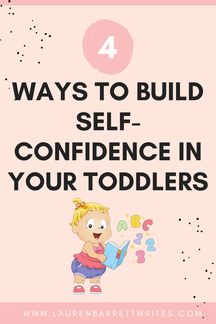

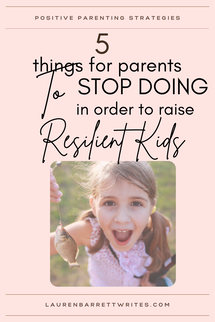
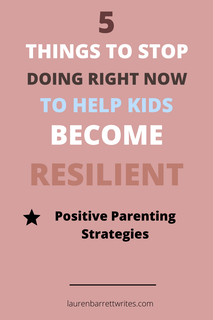
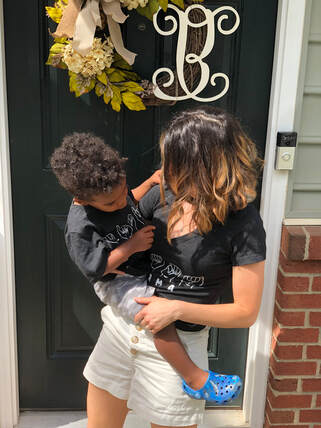
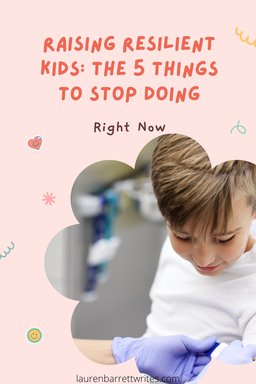

 RSS Feed
RSS Feed